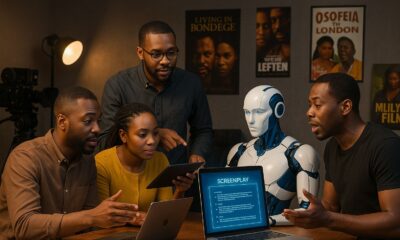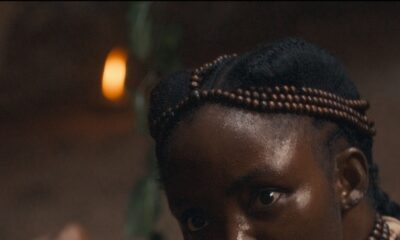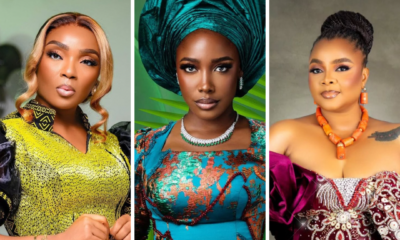Features
James Omokwe on Creating Africa Magic Epics | by Dika Ofoma
Telenovelas may be synonymous with melodramatic Mexican soap operas and those from other parts of Latin America, but in Nigeria, they’ve come to mean the episodic shows from Africa Magic that air every weekday. One of the first of such shows is the long-running Tinsel that started airing in 2008 and is currently in its 14th season.
In story and theme, the Africa Magic shows are not very different from the Latin American soap operas they are modeled after. The shows often centre on a middle-class family while exploring other aspects of their lives – their individual personal, romantic, and business relationships. The shows are also characterized by telenovela staples like sexual dramas and twists that involve characters returning from the dead. Other key features of the Africa Magic shows are that they are contemporary and almost always set in Lagos, the hub for Nigerian filmmaking and entertainment.
However, in the last three years, two Africa Magic shows have been remarkably different from the usual offerings. The first of such shows is Ajoche that began airing in 2018. The show is a period series set in early 20th-century Idomaland. The second is the just concluded Riona set in the 12th-century Itsekiri Kingdom. The 260-episode epic shows have as a dominant theme the battle for kingship while exploring class tensions, cultural traditions, family relations, and romantic dramas. Both Ajoche and Riona were helmed by the filmmaker James Omokwe, whose TV producing credits also include other Africa Magic shows like Unbroken, Head Over Heels, and TV programmes like Highlites with IK and Comedy Nites.
I spoke to James Omokwe about conceptualizing these shows and the work it takes to go back in time to tell stories.
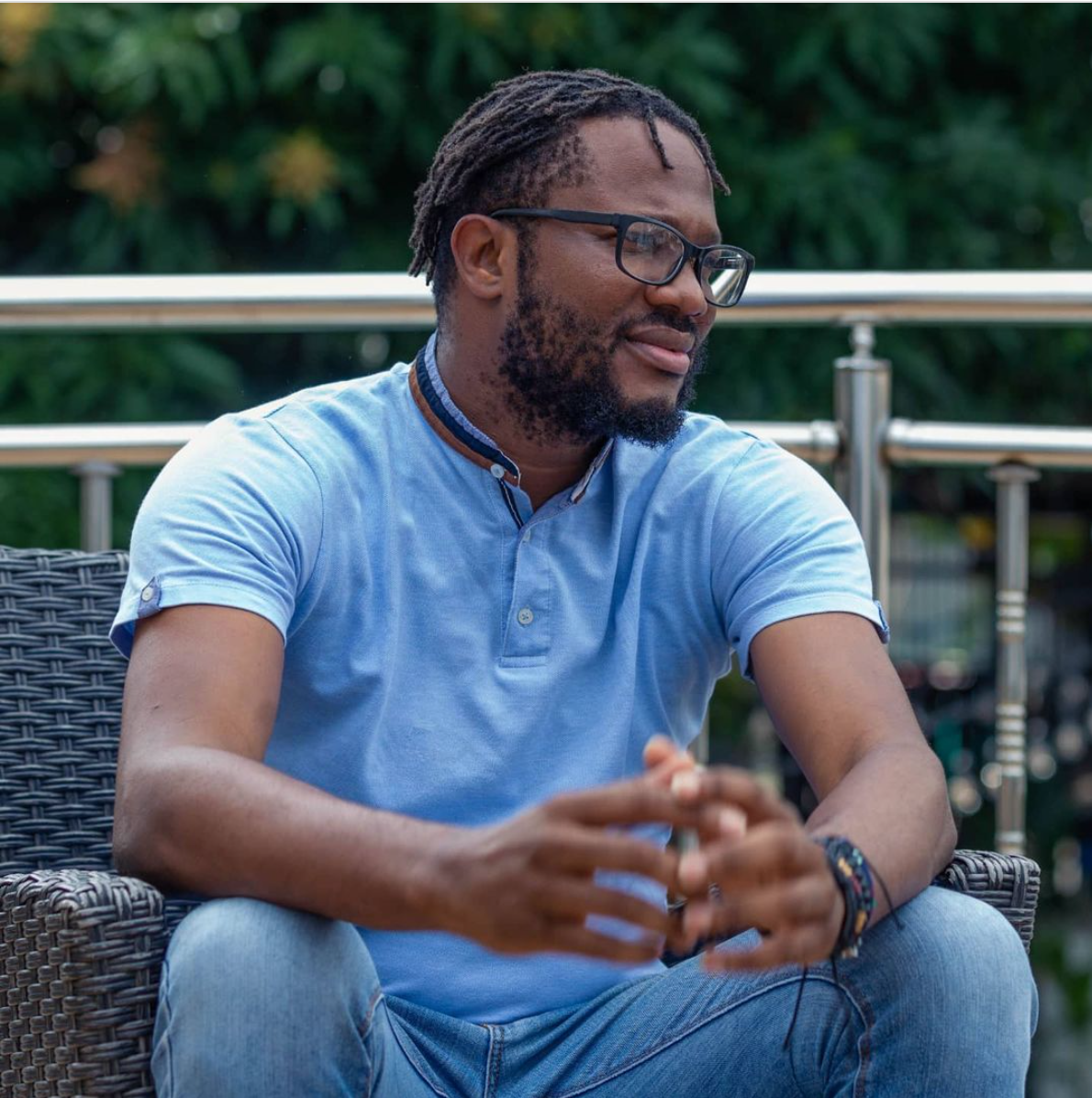
Before Ajoche, we knew Africa Magic shows to be contemporary, often soap operas centred on a Lagos middle-class family – their relationships, businesses, friends, and enemies. Why did you choose difference?
Mostly, it was what Africa magic wanted to do. It wasn’t my choice. I remember when the channel director, Wangi Mba-Uzoukwu, invited me for a story workshop in 2017. They were considering making a contemporary show and an epic. They already had the Epic Channel and stuff on there, but they wanted to make an epic show for their Showcase Channel viewers. We put ideas together and created this epic show called Ajoche. I think it was always part of the plan for her and the channel, because it was like, “we’ve been telling contemporary stories for quite some time, let’s try to tell authentic African stories for a change.” And this is what Ajoche was. I also think it was a sort of experiment for the channel. They wanted to see how their Showcase audience would take to the show.
Ajoche is about an ancient kingdom in Idomaland. Riona is a period piece set in the 12th-century Itsekiri kingdom. This is uncommon too. Nollywood films and shows mainly centre on the two “major’ ethnic groups of Southern Nigeria, Igbo and Yoruba. What made you delve into seemingly unknown territory?
Okay. This one was our choice. When we were pitching Ajoche, it was called “The Kingdom”, but we didn’t know the ethnic group we’d contextualize the story in. One of my suggestions was not to do Hausa, Yoruba, or Igbo because it wouldn’t be different from the other stuff on other channels. I thought that if we focused on one of the minority ethnic groups, the direction of the story would be more interesting.
Apart from that, we also wanted to explore cultures and places a lot of Nigerians were not aware of or didn’t know enough about. A lot of viewers didn’t know much about the Idoma people of Benue state. The only thing they might know about the state might be that 2baba is from there, or just a few towns in the state they might have heard of. They won’t know enough about the culture or language. It was an opportunity to showcase these different cultures within the story that we were telling.
I decided to base the story on the Idoma partly because I thought we could use my friend and partner’s mother as a cultural consultant. Anyway, that didn’t happen but that was the idea behind it. When it was time for Riona, there was also a similar conversation. We had actually chosen a different ethnic group, I can’t remember which now. But we opted for the Itsekiri people because they had a lot more documented history. There had the resource for research. And if we are going to do something else, it would also be one of the lesser-known Nigerian cultures because it’s interesting to watch. A lot of people learnt a whole lot watching Riona. It’s more like you are teaching history with entertainment.
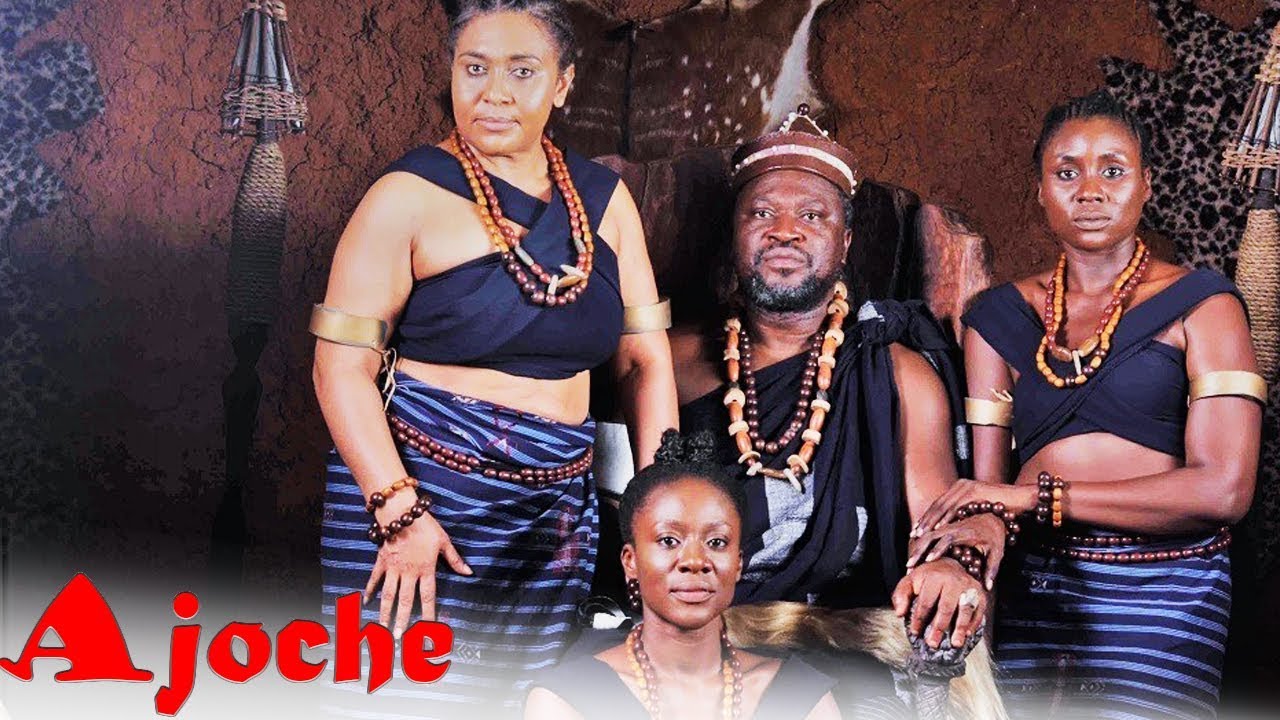
I like the thought to it. You’ve even touched on my next question but I’ll ask it, just in case you’d like to speak more on it. It’s about the work that goes into history reconstruction. I’m not just asking about creating the sets and costumes, but research to ensure accuracy and authenticity. How arduous is it?
With Riona, even though we spoke to someone who knew the culture, we had to hire a cultural consultant because we were going as far back as the twelfth century. We hired a cultural consultant who had to go to Warri and have conversations with the old people and monarchs. She took all the information that she could and then she had this huge document and when we had our first story workshop, we consulted it and took all the things we needed to create the Riona world. Some of the things you see in Riona were actual events but we employed creative license because not all of it was visual enough. But we were careful and tried to remain authentic to the culture of the people.
Although it’s the same with Ajoche, it was a lot easier because the story was more recent than Riona. It was the 20th century, around the amalgamation. The researcher traveled to Otukpo, Benue state, and returned with all the information we needed. What we now did, again, was using creative license to tweak some things to make it more interesting. In terms of language, we had to get a cultural consultant for both shows on set and they were people from those towns. They were on set to ensure that every time we were using the language, it was spoken correctly and that the actors were using the right phrases, that the intonations were stressed properly, that the greetings were done well. I remember the scene where Queen Mofe dies; the writers had written that because the king loved her so much, he had to go hold her and mourn. But according to culture, the king must never be in the same room with the dead, and so right there on set, we had to tweak that bit to be authentic to the culture. It was important for us to maintain accuracy to the tradition. It’s why if you compare on social media right now, the newly crowned king of the Itsekiri kingdom and the character Prince Aghan – there’s a side-by-side picture of both of them – you’d notice that the beads and other accessories they have on are quite similar. The reason why the crowns are different is that the crown that the king wears now is a Portuguese influence that came through in the 15th century. We are just making sure that we are being conscious of the period in which the story happens and ensuring that those little details are put in place.
The crowning of the new Olu of Warri was a special moment for us fans of the show. It made me appreciate even more all the work that went into creating Riona.
Yes. It was. Someone sent me a message that said, “look how your story is like fiction turning to real life.” And it was kind of spiritual to have the show running during the time of the coronation. It was a beautiful thing to see. People could understand the events of the coronation because they watched the show. That was the defining moment of TV for me. It was magical.
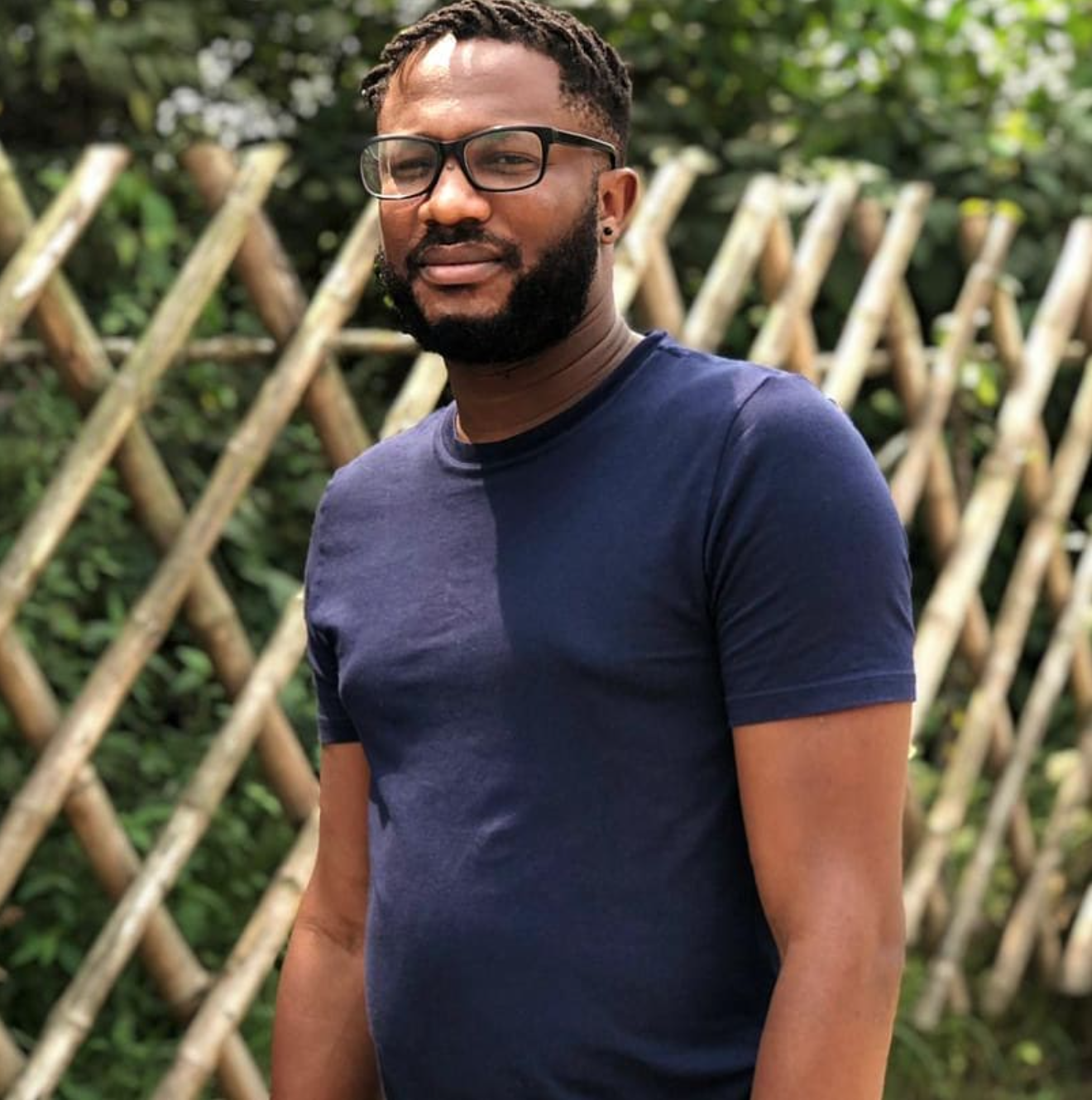
I’m also interested in the cast of Riona. Most of the primary cast is pulled from the theatre scene. What informed this decision?
So I think this time, looking at past performances from Ajoche which were exceptional, we wanted to make sure that we had seasoned and professional actors. Not that we didn’t have them in our past production, but we wanted to try our hands with those who worked in the theatre. I felt that they had more experience, especially those playing older roles and I thought they’d bring a different kind of flavour to what we had. That’s why we had people like Uncle Waka (Soibifaa Dokubo) who played Omereyon and Frank Konwea, Najite Dede, and Elvina Ibru. The only way to suspend your belief is when you have unbelievable performances. Most of the other cast didn’t come from theatre but they pulled off those authentic performances that every time you were watching the show, you were sucked into it. I just wanted to make sure that at least 98 percent of the actors on the show gave their A-game and you’d find such talents in the theatre pool. And that was mainly why we took that decision.
Still on the cast, child actors are not a staple in Nigerian films or shows. And on the rare occasions where they feature, their roles are usually minor. But in Ajoche and Riona, the kids play characters central to the plot. Even though their characters grow up later, and are replaced by older actors as the show progresses, they get ample time, sometimes the whole of the first 100 episodes, to showcase their talent. How challenging was it to find child actors who could perfect the demanding roles?
I think we are quite lucky with child actors. It is very difficult to find child actors that will deliver because there’s a lot of things you have to put into consideration – who’s chaperoning these people, who is taking care of them, and whatnot. We were lucky on both fronts. With Ajoche, some people reached out to us, and we reached out to some people who brought different child actors who delivered their roles perfectly. For Riona, we took it a step further by first reaching out to these actors, and then, some of the older actors on set were gracious enough to train the young ones. They would take them under some tree or to the cafeteria, run their lines with them, and give them tutorials.
Another difficulty with child actors is school. But we were always lucky because most of the time we were filming, it’s either when they were about to go on holiday or they were already on holiday. But we always have some sort of arrangement with their parents and their school, and we try as much as possible to finish up before they resume school fully. Honestly, I try to run away from [casting child actors] because the logistic nightmare is crazy. But if it has to be done, it has to be done. Those were the challenges we faced, but we found a way to pull through with them.

How was it working at that early phase of the COVID-19 pandemic? This was last year when there was a lot of hysteria around it and little to no information about preventing and surviving the disease. How were you able to manage a large cast and crew at this time?
Pandemic, to be honest, that was the toughest time for us. We had started pre production already – building our set – when COVID hit and we had to shut down. I think the first challenge was coming back and continuing to build when there were rules about how many people needed to be in a particular space, especially those in the construction department. It took almost double the time it should have taken to build the set because we had to be very careful. Looking at the budget we had, there was no way we could start testing people. So we had to have very stringent rules of adhering to COVID-19 safety protocols.
When it was time for filming, we had to do the same. The best we could do was ensure the cast and crew followed COVID-19 safety protocols and hope for the best. We had two incidents, one of them happened to a cast member outside the set, the second was with post production. The person had gone home and came back sick. Immediately that happened, we had to shut down there because we were doing post-production in a three-bedroom apartment, and all the editors and DIT guys stayed in that building. So we had to lock it up with them inside for like two weeks. We did a couple of tests to show who was positive or negative and we were giving them drugs, taking care of them but they couldn’t move up and down until they were all better. But it was difficult, to be honest, and luckily, we had no casualties. I don’t want to sound religious, but it was God because it could have been terrible. That’s why when you watch some episodes, you don’t see a lot of people in a crowded scene because we had to make sure we were not getting as many people in a space because of safety. It was difficult but we pulled through.
Your interaction with viewers of your shows on social media is unusual for a Nollywood filmmaker. You even hosted Twitter Spaces and Clubhouse sessions to discuss the events and episodes of Riona. Is it confidence in your work that allows you welcome comments and thoughts of the show?
I always say when we are making these TV shows, we make it for the viewers, because they’re the ones who sit down and watch your stuff. You don’t make it for yourself. So what you would want to do is to get feedback and know if they are actually enjoying it, loving it. I read a lot of comments online on all our shows. Twitter, Instagram, Facebook – I read them all. And sometimes, I really want to be in the heads of the viewers because it helps you when working on another project, it helps you to know or tell what the viewers like. It’s always great for you to be reachable and interact with them. It’s just customer feedback. It’s not really confidence, I just want to know what the audience is thinking.
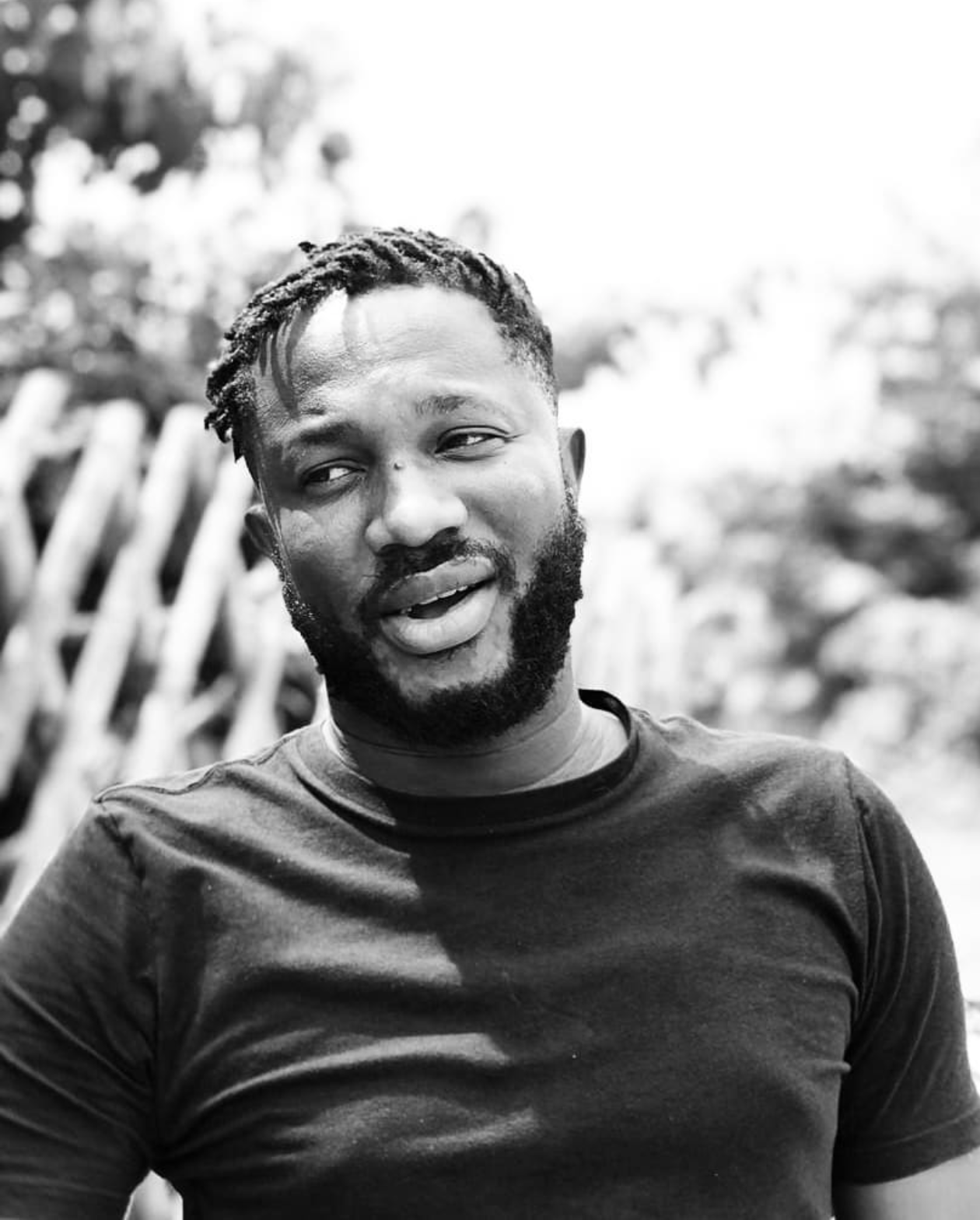
But these reviews could vary from effusive praise to harsh criticism. How do you feel when a viewer’s comment on the show is very critical?
All criticisms and comments are needed. My last show, Unbroken, was bloody. A lot of people didn’t like some aspects of the show. Again, I read all the comments and appreciated everything that everybody said because again, whether you like it or not, if you feel funny about it, there may have been some atom of truth to it. In fact, the audience was right at some point and what I took away was, “okay. Yeah. we need to do better.”
Everybody can’t be expecting high praise from a show. If that’s all you want to hear from your fans, then maybe you should think about going into a different profession. Not everybody is going to like your stuff. The truth is, you need to listen to what everybody has to say. You take what’s good, you take what makes sense, and you apply it to your next project. That’s how I see it. It’s not even everybody that liked Riona. Some people thought it was boring and had other misgivings about the show. Everybody has the right to say whatever they want to say.
Here’s the thing, with me, as long as you’re talking about the show, it means you made out time to watch it. I feel bad when you ask people, have you seen so and so show and they say, “oh, what is that? It makes me feel bad because you didn’t have the time of day to watch it. I just love the fact that you are talking about my show at the end of the day. Whether you are saying something negative or positive, I love it. You are watching my thing! You spent 30 minutes watching my show! I’m happy about it. I used to feel bad about harsh criticism back in the day, but I’m not like that anymore.
So I have heard whispers about a new epic series in the works. What should we expect this time?
(Laughs.) None that I know of. There is a project we are working on but not epic. I can’t talk much about it until it’s ready. I’m hoping there will be another epic show. I hope so.
* This interview has been edited for brevity and clarity.
***
Images from James Omokwe/Instagram


